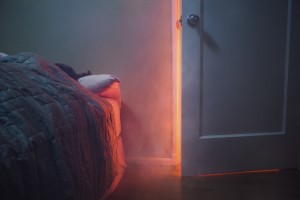How to Prevent Electrical Fires

Home fires can occur where electrical wiring is older and doesn’t meet today’s strict safety standards. But newer homes can be at risk as well. While a 30-amp system can easily be overwhelmed by the electrical demands of multiple high-power appliances, even a 100-to-200-amp system can put excess strain on wiring and electrical components. Therefore, electrical fire prevention is critical in every home.
The most common causes for home electrical fires include poor wiring installation, overloaded circuits/extension cords, defective outlets and switches, and poorly maintained lighting. There are tens of thousands of home fires every year in the U.S. You can avoid your home being included in the statistics with these following preventative measures:
Be Aware of the Warning Signs
Most electrical problems are associated with one or more warning signs. Be attentive to these as acting quickly can help avoid the consequences of an electrical overload, overheating appliance, or wiring problem. The most common warning signs include:
- The lights often dim or flicker
- Circuit breakers trip repeatedly
- Switches/outlets are hot or smell smoky
- Outlets, switch plates, or cords are burnt/discolored
- Burning smells from an appliance or device
- Sparks when you plug something into a socket
- Electrical shock when plugging in a device
Don’t Overload Electrical Outlets
An overloaded outlet can spark or overheat, potentially triggering a fire. Using every plug on an outlet can cause too much electricity to flow through at once. Avoid plugging multiple high-powered appliances into one outlet. Instead, space out where you connect specific devices or appliances.
Be Careful with Outlets, Plugs, and Cords
You can keep electric currents at bay by avoiding running cords under carpeting or bedding. They should never be placed near combustible materials. Don’t run a cord across a frequently traveled area, such as a doorway, and discard any cord that’s frayed or broken. Extension cords should be used sparingly/temporarily; using them in place of outlets is dangerous so, if you need extra outlets, have them installed professionally by a local electrician.
Use Appliances as Instructed
Whenever you unpack a toaster, coffee maker, or microwave, read the instruction manual thoroughly. User manuals typically include tips and warnings on preventing malfunctions, direct from the product manufacturer. There is often registration information as well. By registering a product, you can receive recall notices in case a potential defect is identified. Also follow all instructions on operating the product to prevent misusing it.
If an appliance shows signs of power fluctuations or makes odd noises, stop using it, unplug it, and contact a professional for repairs or to install a replacement.
Install Surge Protectors
Sometimes power surges are unpreventable. An appliance or outlet will spark if there’s a high enough amount of electricity flowing. A surge protector serves as a buffer (diverting voltage and reducing resistance) and prevents an overload from occurring in the first place. It therefore prevents the conditions that can lead to a fire.
Use Lighting Safely
Hot bulbs are a fire hazard when placed near combustible materials. To prevent a fire, move lights away from upholstered furniture, drapery, bedding, and other items that can ignite when heated. Always match the bulb’s wattage with that recommended for the lamp or fixture. Lampshades, aside from being decorative, avoid contact between bulbs and combustible materials. Lighting fixtures should be UL-certified or approved by another recognized safety and certification organization.
Have Your Wiring System Inspected?
If your wiring/electrical system hasn’t been checked in a while, call your local Longmont electrician. Wires deteriorate over time. It’s generally recommended to have wiring systems inspected every 10 years. Any worn, frayed, or damaged wiring must be repaired or replaced to restore safety.
Call Titus Electrical Services
Titus Electrical Services provides electrical repairs, troubleshooting, installation, upgrades, and inspections in the Longmont area. We are committed to electrical safety. Customers depend on us for replacing aluminum wiring, installing surge protection systems, and other safety-focused services. Learn more or schedule an appointment by calling 970-329-2337 today.
